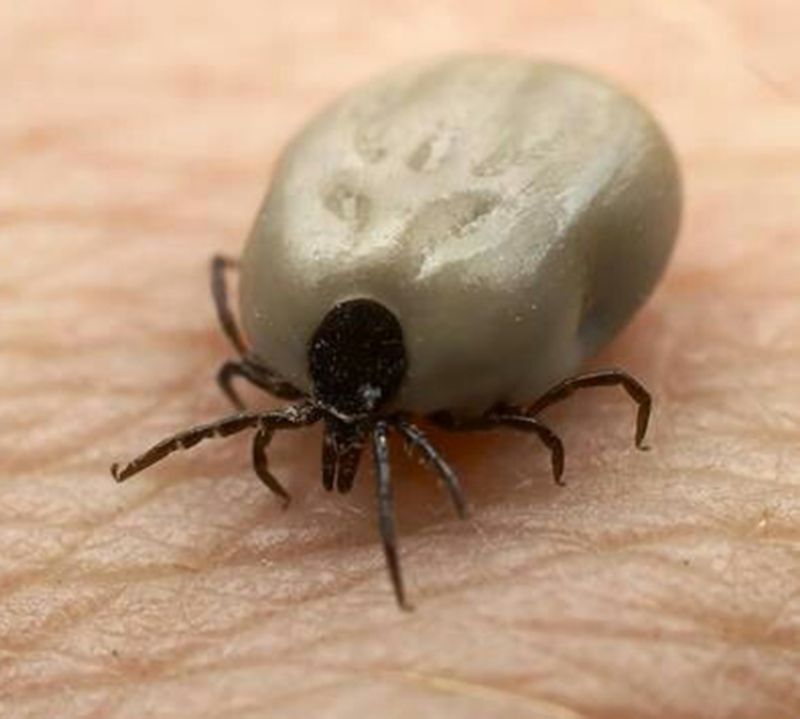- Home
- News, Articles & Reviews
We are hiring! Please click here to join our growing magazine delivery team in Gloucestershire!
Areas
Pets & Wildlife
Archive

Ticks – minor pest or major parasite?
All Areas > Pets & Wildlife > Pet Care
Author: Oliver Wilkinson, Posted: Tuesday, 22nd May 2018, 12:50
To many people, ticks seem to embody all that is nasty and unpleasant about external parasites; creepy little bugs that attach themselves aggressively to the skin and potentially spread other nasty diseases for good measure. Removing them generates even more excitement and anxiety.
There are many suggested techniques for trying to detach the little blighters; I’ve heard of people trying to burn them off (please don’t try that) or smothering them in alcohol or Vaseline to suffocate them. Removing them with a tick remover is actually very easy but the thought of leaving the ‘mouth parts’ embedded in the skin leaves some people too scared to attempt removing them at home. Even identifying a tick causes some people problems. I had one pet owner bring their dog in after attempting to remove a tick from its tummy, complaining that every time they tried to pick it off the dog yelped. I had to explain to them that they had been trying to pick off their dog’s nipple!
How much of an actual problem are ticks?
So the question remains how much of an actual problem are ticks? Well, the question varies depending on where you live. In Australia we have Ixodes holocyclus – the paralysis tick, a genuinely lethal tick that causes a progressive and eventual complete paralysis of its host. If the tick isn’t found in time and removed it will certainly kill a dog or cat.
Thankfully, we don’t have that particular nasty tick in Europe. However, tick-borne diseases can be an issue particularly on the continent. These are microscopic parasites, bacteria or viruses that the tick carries and infect animals with when it bites and feeds. In Europe we get particularly worried about the bacterial infections of Ehrlichia and Borrelia (Lyme’s disease) and the blood parasite Babesia.
Babesia and Ehrlichia can be particularly serious but fortunately, apart from very isolated cases, are confined to the continent. We do however occasionally see cases in dogs that have returned from France and Spain. This leaves us with Borrelia, or as it is more commonly known, Lyme’s disease. This bacteria does exist in the UK and infection can cause fever, joint swelling, lameness and even kidney and brain damage. It is thankfully quite rare and mostly confined to specific areas of the country including the New Forest, Dartmoor, Exmoor and East Anglia.
Avoiding infection is achieved by good tick prevention treatments, and removing a tick promptly prevents infections being transmitted. Using a topical tick treatment or monthly tablet will kill off ticks after they have attached, although they may still need to be physically removed. A cheap tick remover tool and appropriate tick preventatives can be obtained from your local vet clinic, along with advice on which is most appropriate for your pet.
Mind you, if ticks still really worry you, have a think about another parasite that spread the bubonic plague and killed up to 200 million people worldwide – the flea.Copyright © 2024 The Local Answer Limited.
Unauthorized use and/or duplication of this material without express and written permission from this site's author and/or owner is strictly prohibited. Excerpts and links may be used, provided that full and clear credit is given to The Local Answer Limited and thelocalanswer.co.uk with appropriate and specific direction to the original content.More articles you may be interested in...


© 2024 The Local Answer Limited - Registered in England and Wales - Company No. 06929408
Unit H, Churchill Industrial Estate, Churchill Road, Leckhampton, Cheltenham, GL53 7EG - VAT Registration No. 975613000You are leaving the TLA website...
You are now leaving the TLA website and are going to a website that is not operated by us. The Local Answer are not responsible for the content or availability of linked sites, and cannot accept liability if the linked site has been compromised and contains unsuitable images or other content. If you wish to proceed, please click the "Continue" button below:




